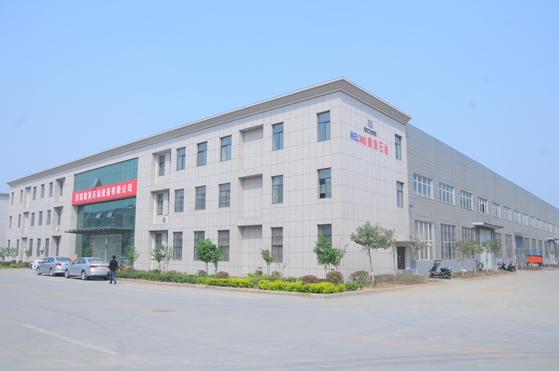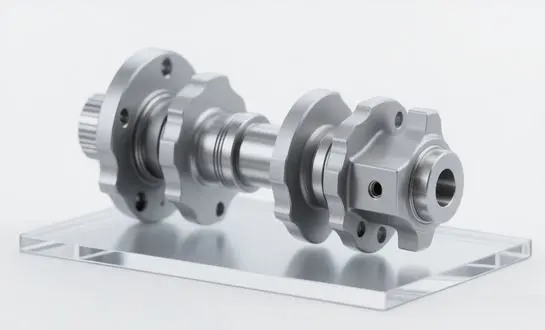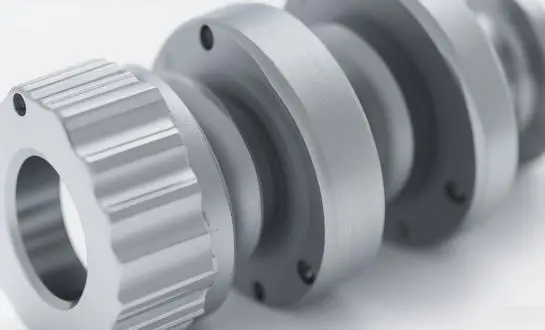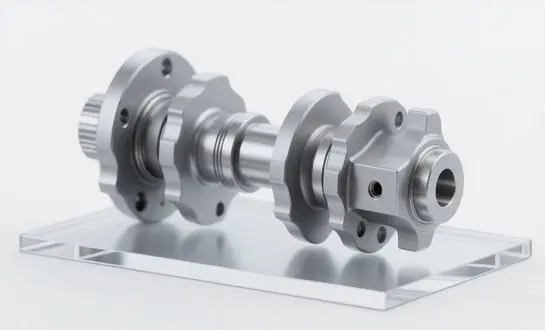Cost-Benefit Analysis: Roller Reamers vs. Traditional Tools
When considering the investment in roller reamers for deep well drilling, it's crucial to conduct a thorough cost-benefit analysis. Let's examine how roller reamers stack up against traditional tools in terms of both initial costs and long-term value.
Initial Investment Comparison
At first glance, the upfront cost of roller reamers may seem higher compared to traditional tools. However, this initial investment needs to be viewed in the context of the tool's lifespan and performance capabilities. Roller reamers are engineered with high-quality materials like AISI 4145H or 4330V steel, ensuring durability and longevity even in harsh downhole conditions.
Operational Efficiency and Time Savings
One of the most significant advantages of roller reamers is their ability to enhance operational efficiency. By reducing friction and providing superior hole cleaning, these tools can significantly speed up the drilling process. This time-saving aspect translates directly into cost savings, as rig time is one of the most expensive components of any drilling operation.
Reduced Wear and Tear on Equipment
Traditional tools often lead to increased wear and tear on drill strings and other equipment due to higher friction and vibration. Roller reamers, with their rotating elements, help distribute forces more evenly, reducing equipment stress. This results in fewer replacements and repairs, contributing to overall cost savings.
Long-Term Value Proposition
When evaluating the long-term value, roller reamers clearly outshine traditional tools. Their ability to maintain gauge, reduce torque and drag, and improve overall drilling performance leads to fewer complications and reduced non-productive time. These factors combine to offer a compelling return on investment over the life of multiple drilling projects.
5 Key Advantages of Roller Reamers in Deep Drilling
Roller reamers offer several distinct advantages that make them particularly valuable for deep drilling operations. Let's explore the five key benefits that set these tools apart in challenging downhole environments.
Enhanced Hole Cleaning
In deep wells, effective hole cleaning becomes increasingly critical. Roller reamers excel in this aspect by agitating the drilling fluid and cuttings, preventing them from settling and potentially causing stuck pipe incidents. This enhanced cleaning action is particularly beneficial in deviated or horizontal sections of deep wells where gravity settling can be a significant issue.
Reduced Torque and Drag
Deep wells often experience high torque and drag, which can limit the ability to reach target depths. Roller reamers significantly reduce these forces by providing a rolling contact with the borehole wall instead of a sliding one. This reduction in friction allows for extended reach in directional and horizontal wells, enabling access to reserves that might otherwise be unattainable.
Improved Wellbore Stability
Maintaining wellbore stability is crucial in deep drilling operations. Roller reamers contribute to this by helping to create a more uniform and smoother wellbore. The rolling action of the roller reamer helps to compact the wellbore wall, reducing the risk of formation damage and improving overall stability. This is particularly valuable in formations prone to swelling or collapse.
Versatility in Formation Types
Modern roller reamers are designed to handle a variety of formation types. Whether dealing with soft, medium, or hard formations, there are roller cutter types specifically engineered for optimal performance. This versatility allows for consistent performance across different lithologies often encountered in deep well projects.
Extended Tool Life
The design of roller reamers, featuring rotating elements, distributes wear more evenly compared to fixed cutting structures. This results in an extended tool life, which is particularly valuable in deep drilling operations where tripping to replace worn tools is time-consuming and costly. The durability of roller reamers translates to fewer trips and more time spent on productive drilling.
Expert Insights: When to Choose Roller Reamers
While roller reamers offer numerous advantages, it's essential to understand the specific scenarios where they provide the most value. Industry experts and experienced drilling engineers provide insights into when roller reamers should be the tool of choice.
Complex Directional and Horizontal Wells
Experts unanimously agree that roller reamers are indispensable in complex directional and horizontal well projects. These wells often involve extended reach and encounter high drag forces. The rolling action of roller reamers significantly reduces these forces, allowing for smoother drilling operations and the ability to reach targets that might otherwise be inaccessible.
High-Angle Sections
In high-angle sections of a wellbore, where the risk of differential sticking is elevated, roller reamers prove their worth. The continuous rotation of the reamer elements helps to prevent the drill string from settling against the low side of the hole, reducing the contact area and minimizing the risk of sticking.
Formations with Stability Issues
Drilling engineers often recommend roller reamers when dealing with formations prone to instability. The compacting action of the roller reamer helps to stabilize the wellbore wall, reducing the risk of collapse or washouts. This is particularly valuable in shale formations or other reactive clays that tend to swell or slough.
Extended Reach Applications
For wells pushing the boundaries of extended reach drilling, roller reamers become a critical tool. The reduction in torque and drag they provide allows operators to drill further and deeper than would be possible with conventional tools alone. This capability opens up new reserves and improves the economic viability of challenging projects.
Challenging Lithologies
When drilling through interbedded formations with varying hardness, roller reamers offer a significant advantage. Their ability to adapt to different formation types without the need for trips to change out tools saves valuable rig time and ensures consistent performance throughout the well.
Conclusion
In conclusion, roller reamers have proven to be a valuable investment for deep well drilling operations. Their ability to enhance hole cleaning, reduce torque and drag, improve wellbore stability, and adapt to various formation types makes them an essential tool in the modern driller's arsenal. While the initial investment may be higher than traditional tools, the long-term benefits in terms of operational efficiency, reduced non-productive time, and extended reach capabilities far outweigh the costs. As the oil and gas industry continues to push the boundaries of deep drilling, roller reamers will undoubtedly play a crucial role in enabling access to challenging reserves and improving overall project economics.
Call to Action
Ready to elevate your deep well drilling operations with high-quality roller reamers? Look no further than Welong, your trusted partner in oilfield equipment. With over 20 years of experience in manufacturing premium oilfield products, Welong offers roller reamers engineered for superior performance and durability. Our strict quality control processes, ISO 9001:2015 and API 7-1 certifications, and skilled production team ensure that you receive top-notch tools delivered on time, every time. Whether you need roller reamers for hard, medium, or soft formations, Welong has the expertise to meet your specific requirements. Don't let challenging well conditions hold you back – invest in Welong roller reamers and experience the difference in your drilling efficiency and project success. Contact us today at oiltools15@welongpost.com to discuss your roller reamer needs and take the first step towards optimizing your deep well drilling operations.





